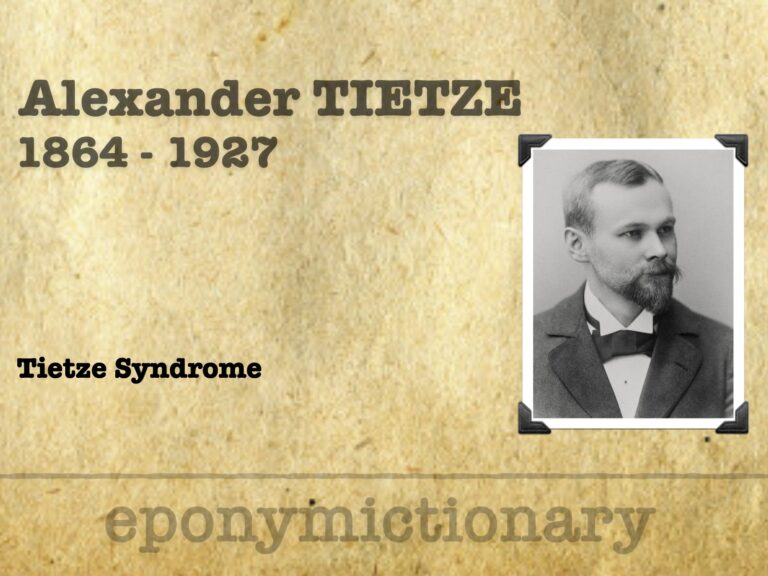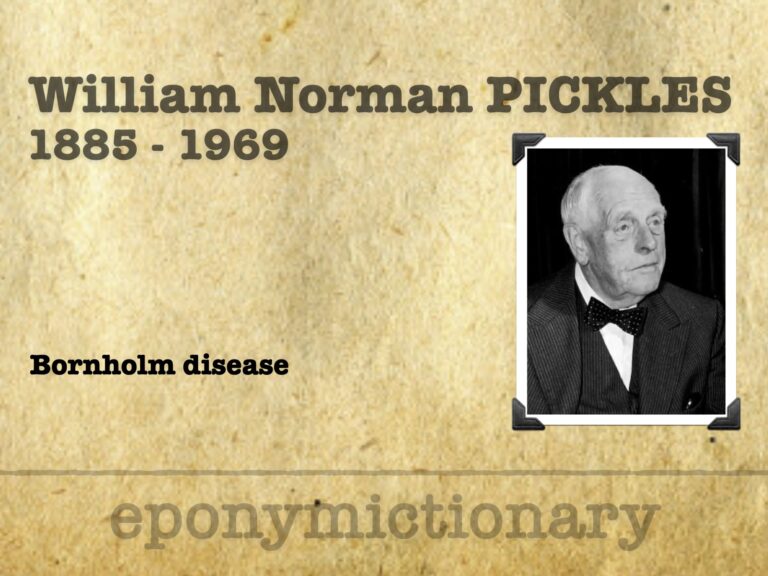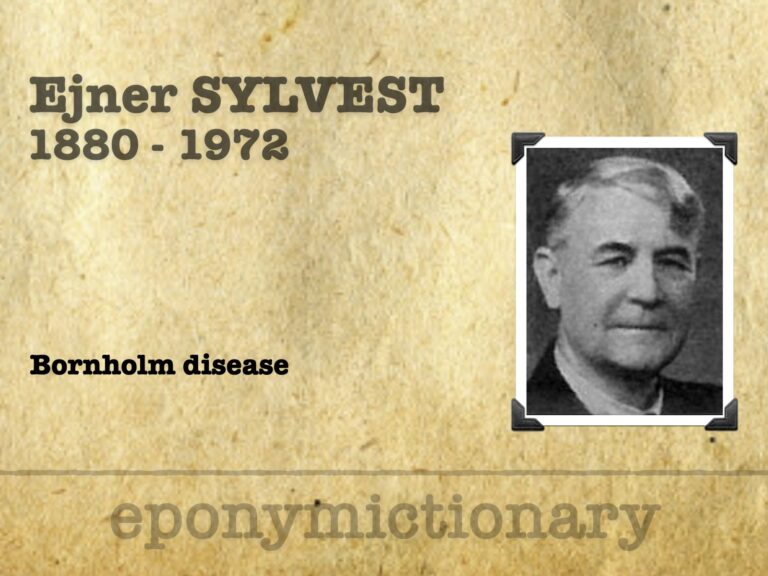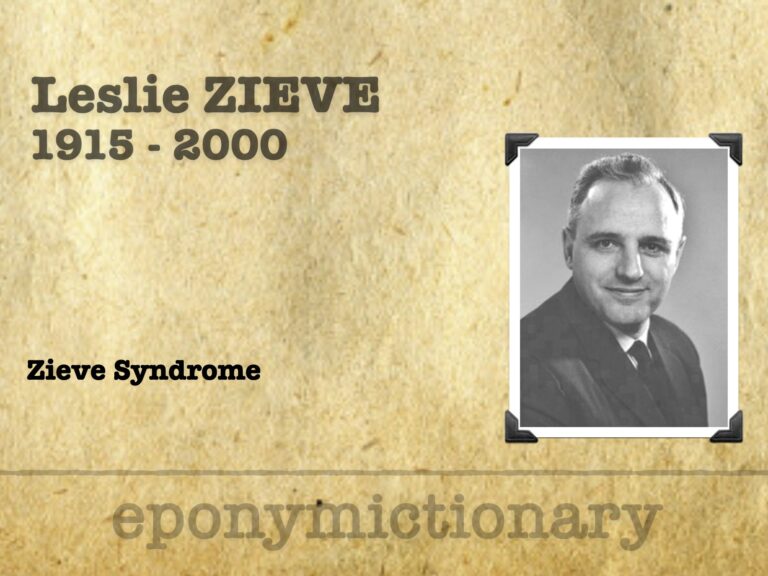
Henri Huchard
Henri Huchard (1844–1910), French cardiologist at Necker, defined “cardio-arterial” disease, described Huchard’s sign, and helped shape early hypertension care.

Henri Huchard (1844–1910), French cardiologist at Necker, defined “cardio-arterial” disease, described Huchard’s sign, and helped shape early hypertension care.

Alexander Tietze (1864–1927), German surgeon who described Tietze syndrome. Expert in emergency surgery and civic leader in Breslau during WWI.

W.N. Pickles (1885–1969), rural GP and epidemiologist, defined Bornholm disease in Britain and shaped modern public health through detailed field observation.

Texidor’s Twinge (Precordial Catch Syndrome): benign, sharp chest pain in youth, first described in 1892, clarified by Miller, Texidor, and Asher in the 1950s.

William H. Park (1863–1939), NYC bacteriologist who advanced diphtheria antitoxin, milk safety, and defined ethical dilemmas in the case of Typhoid Mary.

Ejner Oluf Sørensen Sylvest (1880-1972) Danish physician named and defined Bornholm disease, framing epidemic pleurodynia decades before its viral cause was confirmed.

William Cec. Dabney (1849–1894) described epidemic chest pain (“Devil’s Grip”) and championed medical education, licensure, and public health in Virginia

Cornelia Catharina de Lange (1871-1950) was a Dutch pediatrician. Described Cornelia de Lange syndrome (CdLS) in 1933

Charles Gilbert Chaddock (1861-1936) was an American neurologist, psychiatrist, poet and medical translator. Chaddock sign and Chaddock wrist sign

Józef Dietl (1804–1878) was a Polish physician, politician, professor and rector. Eponym: Dietl's crisis ureteropelvic junction obstruction (UPJO)

Leslie Zieve (1915–2000), American hepatologist; Zieve syndrome: jaundice, haemolysis, and hyperlipidaemia in fatty liver disease.

Edmund Landolt (1846–1926): Swiss-French ophthalmologist who created the Landolt C optotype, advanced strabismus surgery, and retinal anatomy studies